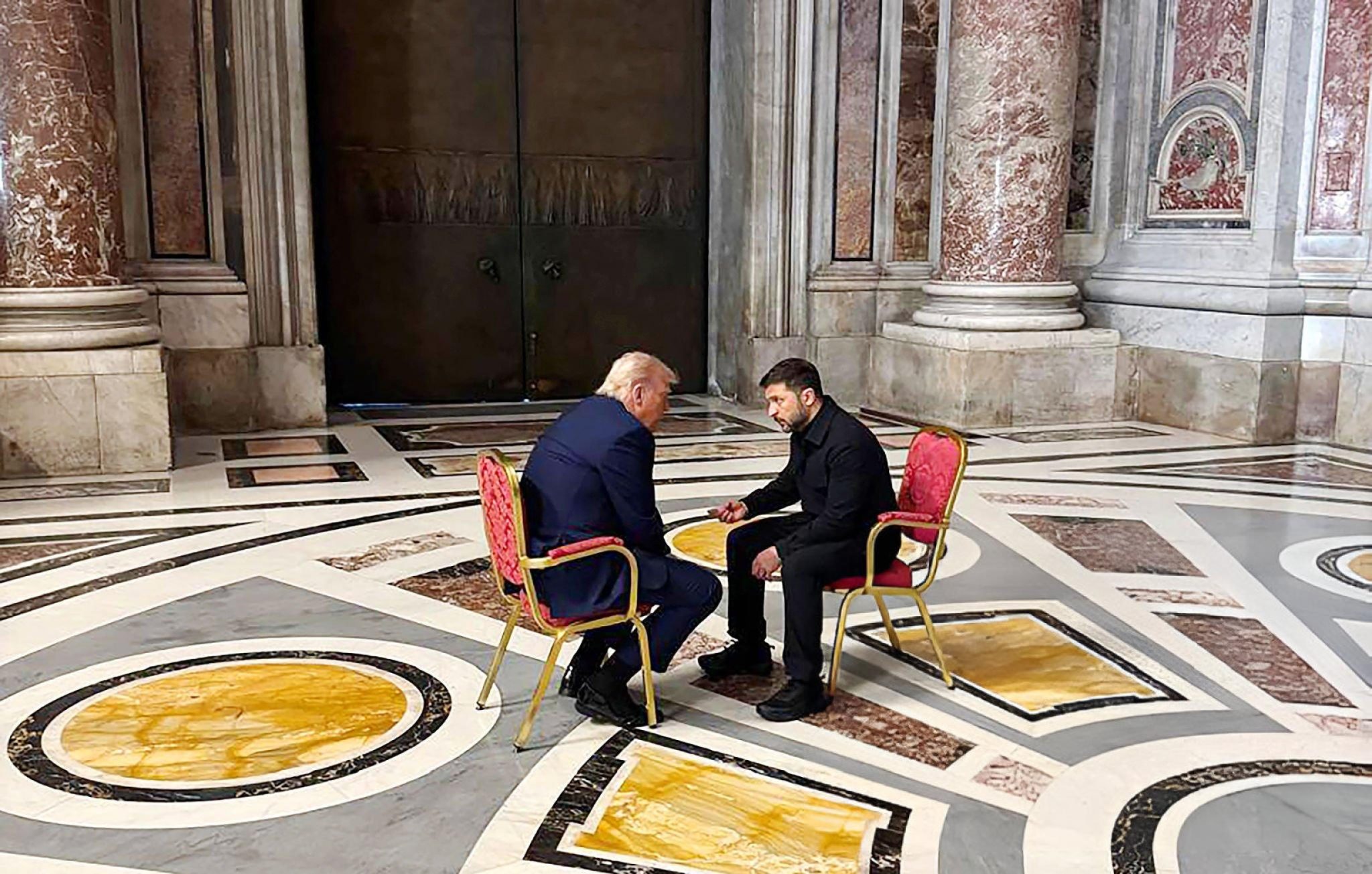Donald Trump’s apparent change of heart regarding Russia has been described as “welcome” by a senior UK minister, in the clearest signal yet that Britain hopes for a more balanced approach from the US president in efforts to end the war in Ukraine.
Mr Trump turned his criticism towards Russian President Vladimir Putin on Saturday, after meeting Ukraine’s Volodymyr Zelensky on the fringes of the Pope’s funeral in Rome.
Images captured within the Vatican showed the two leaders locked in an intense discussion, marking their first meeting since a strained confrontation in the White House earlier this year.
The Trump administration’s proposed peace agreement has raised eyebrows among allies, as early drafts appeared to favour Moscow heavily over Kyiv. Reports suggest that the deal would require Ukraine to make major territorial concessions, a prospect Mr Zelensky has repeatedly rejected.
During Saturday’s meeting, Mr Trump maintained criticism of Mr Zelensky’s position, calling Ukraine’s hopes of reclaiming Crimea “ridiculous.” However, in a notable shift, he also directed criticism towards Russia.
Posting on his Truth Social platform, Mr Trump wrote that Mr Putin “maybe doesn’t want to stop the war” and accused the Russian leader of “just tapping me along.”
He further suggested that fresh sanctions could be placed on Russia, signalling a hardening stance from Washington amid growing international scrutiny of Moscow’s actions.
Pat McFadden, the Chancellor of the Duchy of Lancaster, became the first senior UK government figure to respond publicly to Mr Trump’s latest statements.
Speaking to Sky News’s Sunday Morning With Trevor Phillips, Mr McFadden said: “Certainly the tone that was adopted yesterday in terms of recognising the consequences of Russian aggression was right, was welcome.
“This is a war of Russian aggression, so I hope that President Trump and his administration can bring the parties together in a way that stops the fighting and gets a lasting peace.”
When pressed on whether there had been a change of heart within the White House about Mr Putin, Mr McFadden replied: “Those words speak for themselves. There’s certainly no reason for President Putin to be ordering strikes on civilian areas in Ukraine.”
The UK government has consistently maintained that any peace deal must be led by Kyiv and that Britain would not pressure Ukraine into accepting terms that involved territorial losses.
Asked directly whether Britain would back a deal involving concessions to Russia, Mr McFadden said: “This is for Ukraine to decide, not for the UK Government to decide if that’s on the table.”
Kemi Badenoch, leader of the Conservative Party and a former minister in the previous government, also welcomed Mr Trump’s comments, describing them as “definitely a sign of progress.”
Speaking to reporters, Ms Badenoch said it was “really heartening” to see Mr Trump engaging directly with Mr Zelensky, particularly “after that really awful press conference” earlier this year where tensions had flared between the two leaders.
“I think we should all be pleased to see these positive signals,” she added.
The evolving position of the United States is being closely watched across Europe, as allies fear that divisions between Kyiv and its principal backers could ultimately embolden Moscow.
Mr Trump’s previous reluctance to criticise Mr Putin and his ambiguous stance on Ukraine’s territorial integrity had raised alarms in London, Paris and Berlin. European leaders are hoping that the apparent shift signals a more robust and united Western front moving forward.
However, concerns remain over the details of the peace plan proposed by the Trump administration, with many observers warning that any deal perceived to legitimise Russian territorial gains could set a dangerous precedent for international law and order.
As diplomatic efforts continue behind closed doors, both Kyiv and its allies insist that any peace must respect Ukraine’s sovereignty and territorial integrity — a principle they argue must not be compromised.






